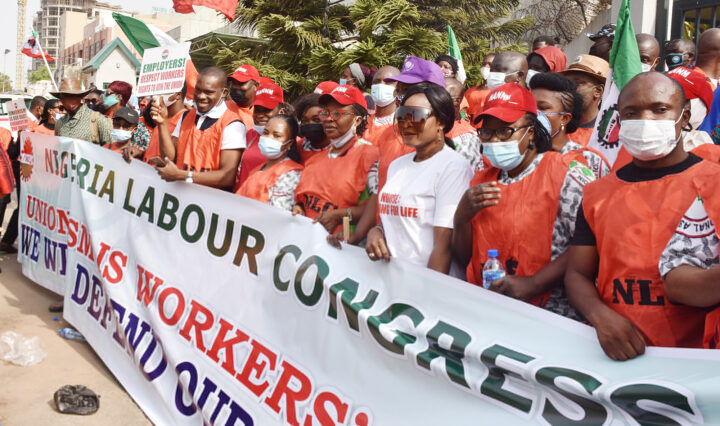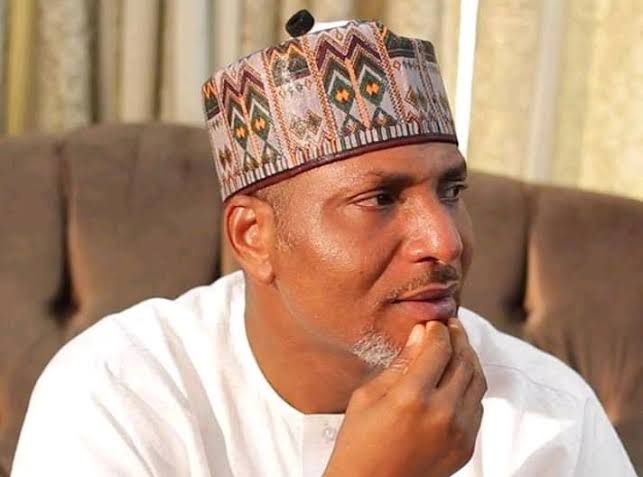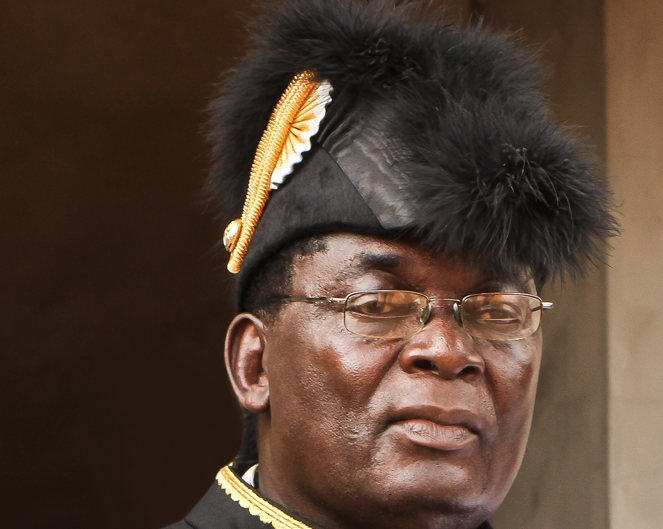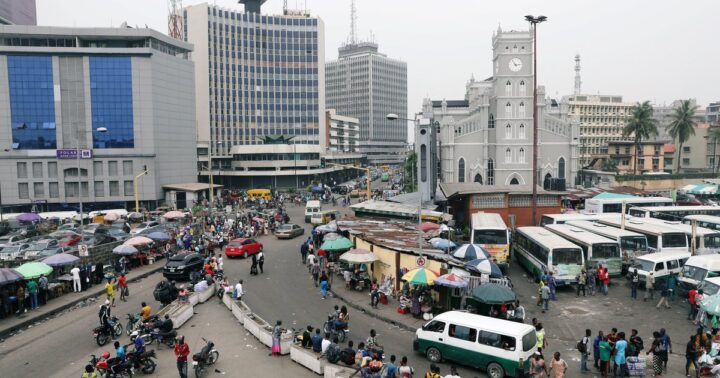BY FELIX OLUDARE AJIOLA
Simply put, the Nigerian industrial climate is due for a general strike!
Given the class nature of the present ASUU strike and government’s unwillingness to fund public education, it is imperative for the entire working people of Nigeria, under the aegis of the various labour unions, to embark on a comprehensive general strike that would compel the government to definitively end the ongoing ASUU strike. It is obvious that Nigeria is a class society. But the class relations through which the citizens are exploited involve both the internal political class and their international capitalist collaborators. Given this fact, class action by the poor requires that they organise themselves to act directly in their own cause, perhaps ultimately culminating in a People’s Revolution against the parasitic thieving ruling class. In embarking on collective action for the resolution of the current impasse, this would not be the first time that a class struggle would be prosecuted against imperial agents, neoliberal actors and authoritarian leadership. Indeed, there have been instances when the entire working class mobilised in solidarity for their counterparts across diverse sectors.
First, a general strike became necessary under colonial capitalism during the famous “Cocoa Pool 1937-1938”, when Nigerian workers fully mobilised in solidarity for Nigerian cocoa farmers. In this case, 41 registered trade unions with a total membership of 17,521 had downed their tools in solidarity with the cocoa farmers. This radical struggle was initially spearheaded by the Nigerian Youth Movement (NYM), which organised several protests and revolts against the British-imposed Cocoa Agreement. A delegation of the NYM made an extensive tour of Western Nigeria to ensure that the general strike was comprehensive and effective. In Lagos, the NYM organised mammoth rallies against the Cocoa Pool. Thereafter, a resolution was passed condemning the formation of the Cocoa Pool, with full solidarity expressed for the impoverished cocoa producers. The working class sustained the general strike until the government dissolved the Cocoa Pool.
Secondly, the Great COLA General Strike of 1945 is another notable example of working class solidarity against an unjust law as well as deplorable conditions of service. What started out as a labour crisis by railway employees in June 1945 eventually spread to other unions in the civil service, with the private sector later joining their counterparts in the public sector. Like the previous general strike, the 1945 strike, which involved 17 labour unions and up to 200,000 workers, lasted 45 days and caused a total shutdown of the economy. Given the class dynamics of the protracted ASUU strike, it is important that the struggle be prosecuted with the full mobilisation of the entire working people of Nigeria across all trade unions. This is germane, because the capacity of Nigerian students to carve out a future for themselves has been severely constrained by the educational crisis and insecurity they face daily. Nigerian students face severe challenges of dilapidated teaching and research infrastructures, limited job opportunities after graduation, an impoverished social welfare system and a political domain marked by corruption and mismanagement. The Nigerian university system and university teachers are currently gasping for breath owing to the deliberate attempt by government, in concert with neoliberal institutions such as the International Monetary Fund (IMF) and the World Bank, to ground public tertiary education in the country. Inadequate funding, resulting in dilapidated teaching and research infrastructure, lack of modern equipment and resources, in addition to miserable remuneration, have eroded the past gains and glory of the Nigerian public university system. The university is meant to generate ideas for solving societal problems and challenges, leading to qualitative growth and development of the country. How can Nigerian university teachers play their part in this process if they have to contend with the perennial problem of miserable salaries, especially under conditions of hyperinflation? How can academics working under such conditions of severe stress compete with their counterparts in other climes? It is unacceptable for university teachers to be placed on salaries that shame their labour!
Advertisement
There can be no denying the strong link between cutting-edge scholarship and the material well-being of scholars as instanced by an environment that is conducive to learning and research. Young academics are increasingly recoiling from the nightmare to which they had, perhaps unknowingly, committed themselves, especially when they critically examine the current conditions of their own former teachers. Little wonder they have been migrating in their numbers to Europe and America and sometimes to other African countries that invest more seriously in education. It is troubling that the Nigerian government has turned a blind eye to the suffering of Nigerian university academics. The situation is even worsened by series of cruel neoliberal policies that seek to transform public education from a public service into a commodity. Indeed, we must ask: How can a people struggling with endemic poverty, misery and disappearing livelihoods afford the commercialisation of education at this time?
It is clear that the political class only represents power, money and policies skewed towards its inordinate and prebendal accumulative tendencies. The title of a popular recent book on Nigeria by Maier Karl, This House Has Fallen, is quite illustrative. The author, of course, borrowed the phrase from the Nigerian novelist Chinua Achebe, whose words he quotes at the beginning of the book: ‘This is an example of a country that has fallen down; it has collapsed. This house has fallen.” While Achebe’s work reflected a moment of postcolonial pessimism about state and society in Nigeria and Africa in general, today such pessimism is reinforced and it has found particular expression with regard to Nigeria’s working people, whose common patrimony is being looted by a parasitic and shameless ruling elite. Nigerian politics under President Muhammadu Buhari has taken the shape of ‘prebendal politics’, similar to Ekeh’s qualification of the two publics. Political instrumentalisation of disorder is a way in which political actors under the regime maximise their returns on the state of confusion, uncertainty and sometimes even chaos that characterises the polity. The term ‘disorder’ here refers to the lack of institutionalised legal frameworks for bureaucratic statecraft or the supplanting of such frameworks by political actors, thus allowing for prebendal strategies.
As regards the economy, the country’s economy has stagnated since Buhari came to power in 2015 owing to a plethora of problems including the lack of capacity to expand productive enterprises, enhance small and medium manufacturing, promote macroeconomic stability, expand utility grids through public infrastructures such as transportation and communication networks, education and public health. Other issues include removing the impediments to business startups and cross-border flows of commodities and capital. It can be stated unequivocally that this regime is in fact the country’s worst political experiment and historical accident, with its brazen display of lack of micro- and macroeconomic knowledge, its encouragement of corruption as well as its ignorance about the structural workings of the modern global financial system. Undoubtedly, the Nigerian economy has also suffocated intensely owing to the absence of innovation toward price stability, fiscal balance and several essential macroeconomic indicators without which the country is unlikely to transcend the stalemate between extreme poverty, inequality and limited growth. Indeed, the Buhari government has left the country in a terrible mess as cliques usurp governance to serve their selfish ends. This government has taken us back to the 1980s, with its unrestrained corruption, opaqueness and perfidy as well as reckless management of collective resources. The attraction of easy oil money and misplaced government policies has diminished investment and interest in Nigeria’s educational, health and agricultural sectors. The currency has crashed and has been devalued at various times. Under this government, industrial productivity is slumbering and the nation is sinking into a static economy. Put bluntly, the Buhari administration has strengthened centralisation of the accumulation of wealth at the level of the capitalist political elite and thereby enhanced the politics of prebendalism and neo-patrimonialism. The dominant interest of the comprador bourgeoisie is no longer productivity and aggregate benefit but the individual aggrandisement of a select few. As systemic sabotage and corruption continues unabated under the Buhari administration, revenues that the country should receive from her resources remain unearned, as cartels and oligarchs have captured key public institutions for their primitive accumulative interests. The mother of all corruption is taking place on a daily basis in the oil industry owing to an unholy alliance involving the Nigerian National Petroleum Corporation (NNPC), the government and their foreign partners. Interestingly, this is a sector where the president doubles as the Minister of Petroleum.
Advertisement
In the light of such disturbing evidence, one cannot but conclude that only a drastic working class-led revolution can end the monumental corruption in the oil, maritime and aviation sectors, followed by subsequent deployment of these resources and wealth towards funding of education, employment and sustainable development. Put mildly, a drastic general strike by the Nigerian working class is expedient, as the Buhari regime has failed in representing the interests of the vast majority of citizens. A general strike is overdue, given the class dynamics of the struggle and government’s refusal to fund public education in Nigeria. This is important, because revolutions or social transformations are not made by the masses and peasants but by the intellectuals and the working class whose expectations are not met by the political system in which they exist. As Prof Olorode has noted, there is need for “the reinstatement of collectivism, public purpose and democratic control of plans, programs and processes which used to be guaranteed by the underlying ethos of inclusive and affordable social services such as public education, health and housing and transportation’’. A stable political future will continue to elude Nigeria as long we shy away from building an inclusive political and democratic system on a firm and robust foundation of sustainable investment in education and empowerment of the intelligentsia and professionals.
Finally, the social economic development of the working people in any country depends on the existence and degree of strength of labour unions to challenge the exploitative practices and policies of the bourgeoisie. When these are lacking, weak or subjugated by forces of capitalism or authoritarianism, there will be poverty, misery, lack of human dignity and slavery. It requires a continuous struggle and long-term process to achieve some kind of humanitarian life, lasting peace and human dignity. It should be the common objective of all workers to eradicate the exploitation of humans by humans, if we are ever to reach that goal of building an inclusive society. As Mitchell Foucault has noted, “history is not a predictable mechanism, but a most problematic site of often random struggle, viciously articulated in a cruel world of capitalist-socialist, bourgeoisies-proletariat, oppressor-oppressed, rich and poor’s relationship’’. The current struggle between the Nigerian academics (ASUU) and this present prebendal capitalist government is glaringly a class struggle requiring unflinching solidarity from the masses, artisans, market men and women, youths, workers and labour unions. The defeat of ASUU would be a devastating defeat and humiliation for the working class as a whole. Education can be adequately funded if the issues of wasteful governance, corruption, oil theft and dwindling revenues, etc., are seriously addressed. As Lai Mohammed noted in 2013 (Daily Post, August 21, 2013), “If the Federal Government would reduce its profligacy and cut waste, there will be enough money to pay teachers in public universities, as well as fund research and upgrade infrastructure in such institutions. Hungry teachers can neither teach well nor carry out research. And poorly-taught students can neither excel nor propel their nation to great heights.”
I conclude by noting as follows: Education is our future and we cannot afford further decay beyond what we already have.
Workers of Nigeria, unite!
Advertisement
Ajiola, Ph.D, is a Lecturer/Researcher, African History & Political Economy at the University of Lagos, Nigeria. He can be reached via: [email protected]
Views expressed by contributors are strictly personal and not of TheCable.
Add a comment






